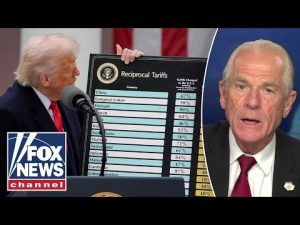**Tesla Terrorism: The Shocking Incident at the Austin Showroom**
In a world where electric vehicles reign supreme and debates about climate change escalate, one might expect passionate discussions and heated debates. However, what transpired at a Tesla showroom in Austin, Texas, took a decidedly darker turn this week, plunging it into the realm of the sensationally absurd. Early Monday morning, the Austin Police Department was called to investigate a report of multiple incendiary devices found within the dealership. Yes, you read that correctly—bombs at a car dealership, amid rising tensions surrounding the electric car giant and its CEO, Elon Musk.
Not your everyday occurrence, is it? The incident began when an anonymous caller reported the presence of these suspicious devices, prompting an immediate response from local law enforcement. In a scene reminiscent of a Hollywood action movie, bomb squad officials quickly arrived to assess the situation. Upon investigation, they discovered multiple incendiary devices designed for large-scale violence. Thankfully, the devices were taken into custody without any incidents, leaving the question lingering in the air: who was behind this bizarre act?
This strange trend of “Tesla terrorism” isn’t new. Before the bombs, there were reports of vandalism aimed at Tesla vehicles—cars being keyed, painted with graffiti, or even set ablaze. While these acts of mischief might sound like typical teenage pranks gone out of control, they raise deeper questions about why individuals are targeting a brand that’s become a symbol of innovation and future technology. Is it simple frustration? A misguided sense of activism? Or perhaps something more coordinated and sinister?
Elon Musk, the visionary behind Tesla, has become a polarizing figure. His call for rooting out waste and corruption in government seems only to have intensified the backlash against him, fueling the frenzy that culminated in the Austin incident. Skeptics on the left appear to have convinced themselves that targeting an eco-friendly brand helps combat the climate crisis—an idea so flawed it almost deserves its own parody. After all, how does blowing up Teslas stop climate change when Teslas, in theory, are part of the solution? If anything, such actions could ironically worsen the very issues they claim to combat. It is almost laughable if the stakes weren’t so high.
The FBI has now stepped in, launching a task force dedicated to addressing these Tesla-related incidents. Reports indicate that agents from the counterterrorism division are now actively investigating the 48 incidents linked to the electric vehicle brand. This escalation is chilling and reflects the seriousness with which authorities are taking this situation. However, one must question why these violent acts were left unchecked for so long before federal intervention. Are we witnessing a spark of activism, or are we now looking at an organized movement with intent to incite fear?
The irony remains that while Tesla owners, largely considered progressive, may disagree with many of Musk’s political stances, they are nonetheless victims in this chaotic theater. Targeting Teslas may inadvertently affect individuals who share similar values—the very liberal buyers who flock to electric vehicles for their supposed environmental benefits. It seems a peculiar strategy to attack fellow like-minded citizens all in the name of a cause that many believe would not warrant such drastic measures.
In conclusion, the shocking turn of events at the Austin Tesla showroom serves as a disturbing reminder of how political and social movements can spiral into chaotic expressions of frustration. It’s a curious clash of ideologies where escalated rhetoric and misguided outrage culminate in acts that put public safety at risk. The Tesla-related bomb threats might just be the tip of the iceberg, suggesting a deeper societal malaise beneath that needs to be addressed rather than allow to fester. What was once an innovative leap towards a greener future has become embroiled in a narrative of division, leading to a question that looms large: where do we go from here?







